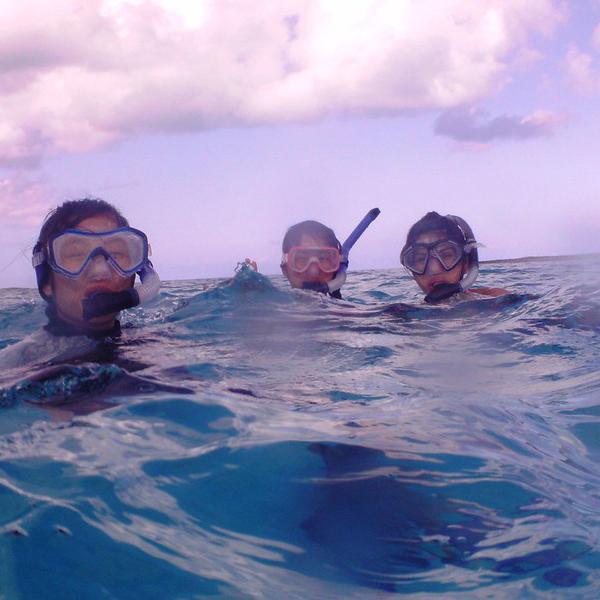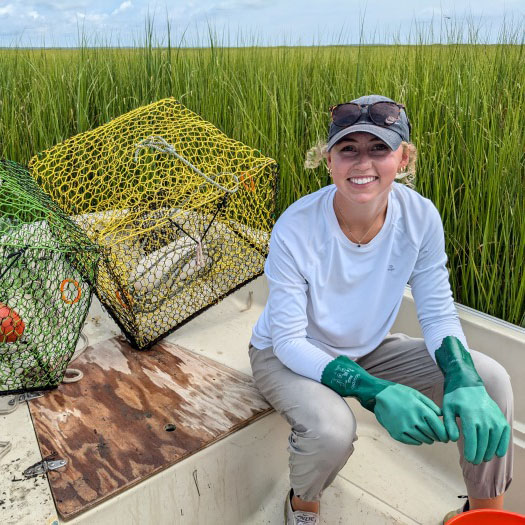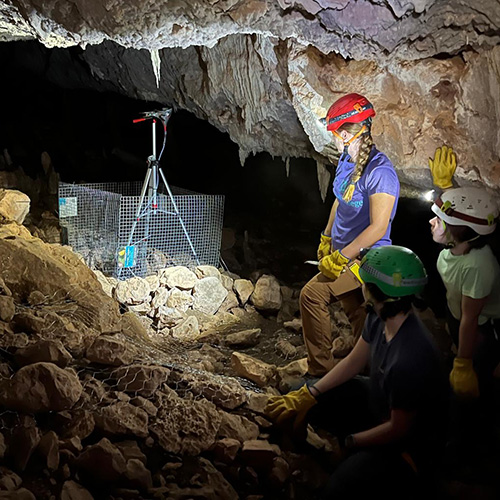Environmental Studies: Environmental Science & Sustainability
Environmental science and sustainability identifies solutions
Cornell College’s environmental science and sustainability major is a natural science-based curriculum grounded in understanding the origins, implications, and solutions to environmental issues. This major prepares you for work in fields such as environmental consulting, sustainability coordination, and natural resource management. Required courses in data analysis (statistics and Geographic Information Systems) develop the skills sought by many employers and graduate programs.
“Over the last century, the world has been transformed. The population rose exponentially, standards of living skyrocketed, and technological advances allowed global societies to become increasingly interconnected. These changes were fueled by the unprecedented use or pollution of environmental resources such as groundwater, fisheries, soils, forests, the atmosphere, hydrocarbons, and mineral deposits. Now in the 21st century, we must find a way for a still-expanding population to live sustainably: to address environmental problems decades in the making as well as those that are newly developing. Our environmental science and sustainability curriculum aims to train students in the interconnectedness of environmental problems and provide them the scientific background necessary to solve them.” -Professor of Geology Rhawn Denniston
When you envision what the world should be in your future, what do you see? And are you looking for the knowledge and skills to help lead the way to your vision? Studying environmental science and sustainability as a Cornell student will help you prepare to impact the future and our planet.
Emima VanSickle '26 took advantage of an internship as an Ingenuity in Action experience and had this to say "Between the experiences I had at the lab and the people I met, I have made memories and incredible growth in my personal, academic, and professional life. This internship has reassured me that I am in the right field with the right intentions and has prepared me to succeed."
Cornell Summer Research Institute: turtle survival and habitat
Cornell students continue one of the longest wildlife research studies in Iowa, started in 1973, that studies the habitat and nesting sites of box turtles and mud turtles to understand how humans and rising temperatures impact these species.
As a Cornell student you might choose to contribute to this ongoing study or one of many other research opportunities.
Environmental science and sustainability course and degree requirements

As an environmental science and sustainability major, you will take a total of 13 courses including a four-course concentration that contains a capstone. You can design your own concentration with the advising assistance of faculty in the program or you can choose from the four prescribed concentrations that align with your interests:
- Climate change
- Environmental biology
- Environmental geology
- Marine science
Environmental science and sustainability Capstone
One of the courses you’ll register for within your area of concentration is your capstone course (ENV 485). Your capstone is a research project that provides you with real-world experience in your area of interest. Projects are overseen by a faculty member and include a written report. Honors in the major require a particularly in-depth capstone project and public presentation.
Environmental studies awards
The Environmental Studies Program Committee oversees annual awards in environmental studies that recognize students who have demonstrated a deep-rooted intellectual engagement with the field of environmental studies.

Perform environmental research
You’ll have ample opportunities to build up your research skills within this major, a highly desirable skill-set to employers. You’ll conduct research projects within some courses and may have the opportunity to work with faculty on their research projects or develop your own.
A team of researchers across the United States, including Cornell College Professor of Geology Rhawn Denniston, is embarking on a mission to answer questions about climate change.

Travel within the environmental science and sustainability major
As part of your environmental science and sustainability major, you might take an off-campus course where you will work with your professor and your classmates to study environmental issues in the field. Such trips provide hands-on experiences that are invaluable exposure to real-world issues in a growing field.
One example is The Geology of the Bahamas, which explores the geologic and biologic processes occurring in modern coral reef systems in the Bahamas archipelago, as well as the history of life and environments on the archipelago, dating back to the last ice age. This course operates out of the Gerace Research Centre (GRC) on San Salvador Island, offering field trips to modern coastal and shallow marine environments (coral reefs, tidal flats, lagoons, beaches, and dunes) as well as ancient analogs represented by rock outcrops, caves, and sink-holes. Associated projects involve readings, lectures, and laboratory work.

Internships that impact our environment
You'll have the opportunity to take advantage of internships that help you to understand what your future role in sustainability and pick up practical skills like how to seine a creek, measure size and population of a species, or complete a biological survey. These internships are also a great networking opportunity to meet the people in your future field of study and the organizations they represent.
An internship can also assist you in graduate program applications and recommendations by highlighting real-world work you've completed and giving you networking opportunities.
What are Cornell students doing in internships? Check out their blogs:
Career opportunities in environmental science and sustainability
The employment rate for environmental scientists is predicted to grow by 8% between 2020 and 2030, with most entry-level positions available to bachelor’s degree holders. The median annual pay for 2024 was listed at $80,060 according to the U.S. Bureau of Labor Statistics.
Potential careers include:
- Climate change analysts
- Industrial ecologists
- Environmental health specialists
- Sustainability coordinators
- Educators
- Hydrologists
- Conservation scientists
The Berry Career Institute can help you identify what you’ll pursue with your background in environmental studies.

